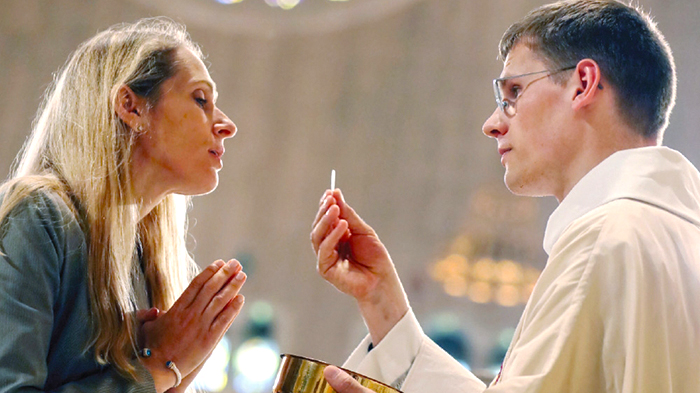
Our scripture verse is one that many people struggle with precisely because we see ourselves either wondering if what we do is truly God’s will for us or simply our desires, masking within us our “hope” that what we want to do is in line with His will. The mystery we live in is huge, and the more we grasp the magnitude of the cosmic and spiritual world, the more we grasp too how ineffable God is, truly beyond us, beyond language, beyond imagination, and even beyond feeling. Fr. Ron Rolheiser, writing on this topic, tells us that we can know God but can never understand God. And so we must be more humble, both in our theology and in our ecclesiology. Mostly, we don’t know what we are doing. Moreover, the older I get, the more I see how blind I am to my own hypocrisies and how weak and rationalizing my human nature is. I don’t always know when I’m rationalizing, biased, or following Christ properly. And, even when I do, I don’t always have the strength or will to do what I know is right. And so, I lean heavily on the invitation that Jesus left us on the night before he died to break bread and drink wine in his memory and to trust that this, if all else is uncertain, is what I should be doing while I wait for him to return. Sometimes, when he was instructing a couple for marriage, Dietrich Bonhoeffer, the great Lutheran priest and martyr, would caution them with words to this effect: right now, you are in love, and you believe that your love can sustain your marriage. It can’t. But your marriage can sustain your love! The Eucharist is such a ritual-container for Christians. We can’t sustain our faith, charity, forgiveness, and hope based on feeling or thought, but we can sustain them through the Eucharist. We can’t always be clear-headed or warm-hearted; we can’t always be sure that we know the exact path of God; and we won’t always measure up morally and humanly to what faith asks of us. But we can be faithful in this one profound way. The Eucharist contains and carries many deep realities: it helps continue the incarnation of God in history, it is God’s physical embrace, it is an intensification of our community together as Christians, it is the new manna that God gives to nurture his people, it is our family meal together as believers, it is Christ’s sacrifice which we commemorate ritually, it is God’s gift of reconciliation and forgiveness, it is an invitation to a deeper discipleship, it is a banquet table opened up for the poor, it is a vigil service within which we wait for Christ to return, and it is Christ’s priestly prayer for the world. I go to the Eucharist daily for another reason, too, a more personal one: this is the one place where I can be faithful and essentially measure up. I can’t always control how I feel or how I think, and I can’t always measure up morally and spiritually, but inside of my perpetual inadequacy and occasional doubt and confusion, I can be faithful in this one profound way.
